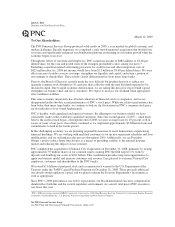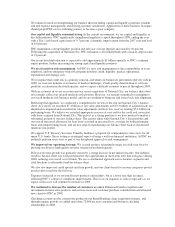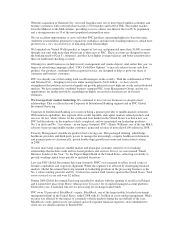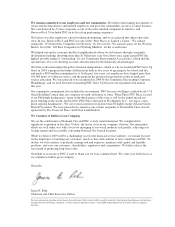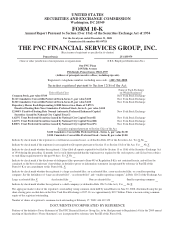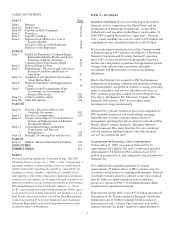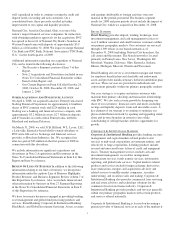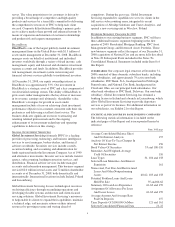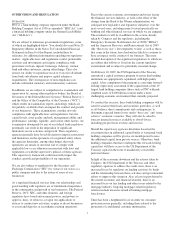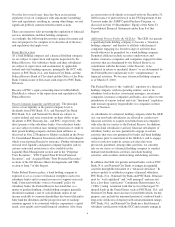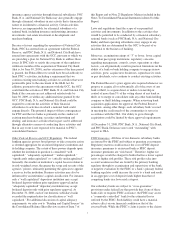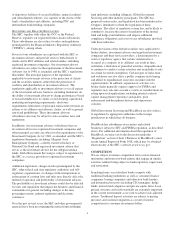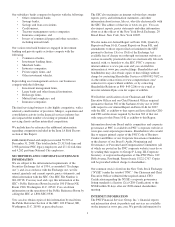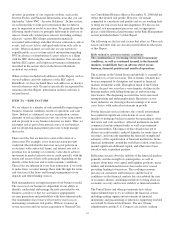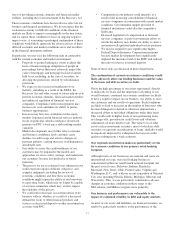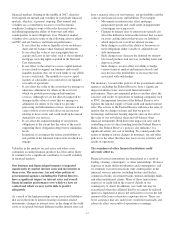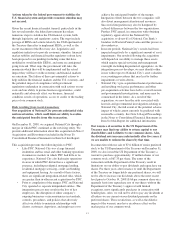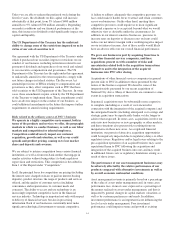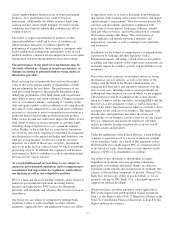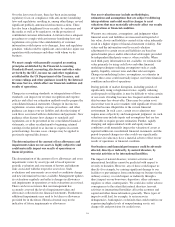PNC Bank 2008 Annual Report Download - page 10
Download and view the complete annual report
Please find page 10 of the 2008 PNC Bank annual report below. You can navigate through the pages in the report by either clicking on the pages listed below, or by using the keyword search tool below to find specific information within the annual report.
Over the last several years, there has been an increasing
regulatory focus on compliance with anti-money laundering
laws and regulations, resulting in, among other things, several
significant publicly announced enforcement actions.
There are numerous rules governing the regulation of financial
services institutions and their holding companies.
Accordingly, the following discussion is general in nature and
does not purport to be complete or to describe all of the laws
and regulations that apply to us.
B
ANK
R
EGULATION
As a bank holding company and a financial holding company,
we are subject to supervision and regular inspection by the
Federal Reserve. Our subsidiary banks and their subsidiaries
are subject to supervision and examination by applicable
federal and state banking agencies, principally the OCC with
respect to PNC Bank, N.A. and National City Bank, and the
Federal Reserve Bank of Cleveland and the Office of the State
Bank Commissioner of Delaware with respect to PNC Bank,
Delaware.
Because of PNC’s equity ownership interest in BlackRock,
BlackRock is subject to the supervision and regulation of the
Federal Reserve.
Parent Company Liquidity and Dividends. The principal
source of our liquidity at the parent company level is
dividends from PNC Bank, N.A. and National City Bank.
PNC Bank, N.A. and National City Bank are subject to
various federal and state restrictions on their ability to pay
dividends to PNC Bancorp, Inc., and PNC, respectively, the
direct parents of the subsidiary banks. Our subsidiary banks
are also subject to federal laws limiting extensions of credit to
their parent holding company and non-bank affiliates as
discussed in Note 23 Regulatory Matters included in the Notes
To Consolidated Financial Statements in Item 8 of this Report,
which is incorporated herein by reference. Further information
on bank level liquidity and parent company liquidity and on
certain contractual restrictions is also available in the
Liquidity Risk Management section and in the “Perpetual
Trust Securities”, “PNC Capital Trust E Trust Preferred
Securities”, and “Acquired Entity Trust Preferred Securities”
sections of the Off-Balance Sheet Arrangements and VIEs
section of Item 7 of this Report.
Under Federal Reserve policy, a bank holding company is
expected to act as a source of financial strength to each of its
subsidiary banks and to commit resources to support each such
bank. Consistent with the “source of strength” policy for
subsidiary banks, the Federal Reserve has stated that, as a
matter of prudent banking, a bank holding company generally
should not maintain a rate of cash dividends unless its net
income available to common shareholders has been sufficient to
fully fund the dividends and the prospective rate of earnings
retention appears to be consistent with the corporation’s capital
needs, asset quality and overall financial condition. Also, there
are restrictions on dividends associated with our December 31,
2008 issuance of preferred stock to the US Department of the
Treasury under the TARP Capital Purchase Program, as
discussed in Note 19 Shareholders’ Equity of the Notes To
Consolidated Financial Statements under Item 8 of this
Report.
Additional Powers Under the GLB Act. The GLB Act permits
a qualifying bank holding company to become a “financial
holding company” and thereby to affiliate with financial
companies engaging in a broader range of activities than
would otherwise be permitted for a bank holding company.
Permitted affiliates include securities underwriters and
dealers, insurance companies and companies engaged in other
activities that are determined by the Federal Reserve, in
consultation with the Secretary of the Treasury, to be
“financial in nature or incidental thereto” or are determined by
the Federal Reserve unilaterally to be “complementary” to
financial activities. We became a financial holding company
as of March 13, 2000.
The Federal Reserve is the “umbrella” regulator of a financial
holding company, with its operating entities, such as its
subsidiary broker-dealers, investment managers, investment
companies, insurance companies and banks, also subject to the
jurisdiction of various federal and state “functional” regulators
with normal regulatory responsibility for companies in their
lines of business.
As subsidiaries of a financial holding company under the GLB
Act, our non-bank subsidiaries are allowed to conduct new
financial activities or acquire non-bank financial companies
with after-the-fact notice to the Federal Reserve. In addition,
our non-bank subsidiaries (and any financial subsidiaries of
subsidiary banks) are now permitted to engage in certain
activities that were not permitted for banks and bank holding
companies prior to enactment of the GLB Act, and to engage
on less restrictive terms in certain activities that were
previously permitted. Among other activities, we currently
rely on our status as a financial holding company to conduct
mutual fund distribution activities, merchant banking
activities, and securities underwriting and dealing activities.
In addition, the GLB Act permits national banks, such as PNC
Bank, N.A. and National City Bank, to engage in expanded
activities through the formation of a “financial subsidiary.” In
order to qualify to establish or acquire a financial subsidiary,
PNC Bank, N.A., National City Bank and PNC Bank, Delaware
must be “well capitalized” and “well managed” and may not
have a less than “satisfactory” Community Reinvestment Act
(“CRA”) rating. A national bank that is one of the largest 50
insured banks in the United States, such as PNC Bank, N.A. and
National City Bank, must also have issued debt (which, for this
purpose, may include the uninsured portion of a national bank’s
long-term certificates of deposit) with certain minimum ratings.
PNC Bank, N.A. and National City Bank have filed financial
subsidiary certifications with the OCC and currently engage in
6

